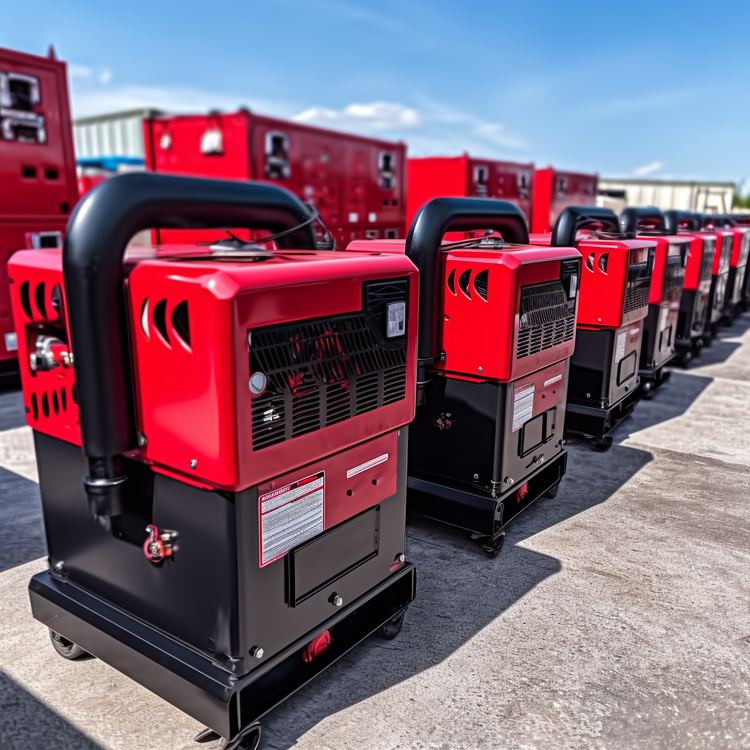Essential Guide to Backup Energy Systems and Equipment
Backup energy systems provide reliable electricity when grid power fails or isn't available. From diesel-powered units for industrial use to solar systems for eco-friendly homes, these devices ensure continuous power supply during outages, remote work, or off-grid living. Understanding different equipment types helps you choose the right backup power solution for your specific energy needs and budget requirements.

Understanding Diesel Equipment for Heavy-Duty Applications
Diesel generators represent the workhorse category of backup power systems, particularly valued for their fuel efficiency and durability. These units burn diesel fuel to power an internal combustion engine connected to an electrical generator. Commercial facilities, hospitals, and industrial sites often rely on diesel generators because they can run continuously for extended periods while maintaining consistent power output. The robust construction of diesel engines typically provides longer operational life compared to gasoline alternatives, making them cost-effective for frequent use scenarios.
Alternative Energy Generator Options for Sustainable Power
Alternative energy generator systems encompass various technologies beyond traditional fossil fuel equipment. Wind systems harness air movement to produce electricity, while hydroelectric units use flowing water for power generation. Biomass equipment converts organic materials into usable energy, and geothermal systems tap into earth’s natural heat. These alternative energy generator solutions appeal to environmentally conscious users seeking renewable power sources. However, their effectiveness depends heavily on local environmental conditions and available natural resources in your area.
Electric Energy Generator Systems and Battery Storage
Electric energy generator systems often integrate battery storage technology to provide clean, quiet power without emissions. These systems store electrical energy from various sources including solar panels, wind turbines, or grid charging during off-peak hours. Battery-based electric energy generator units offer instant power delivery without warm-up time, making them ideal for sensitive electronics and medical equipment. Modern lithium-ion battery systems provide longer runtime and faster charging compared to traditional lead-acid alternatives.
Home Generators for Residential Backup Power
Home generators come in portable and standby configurations to meet different residential needs. Portable home generators typically run on gasoline or propane, offering flexibility for camping, outdoor events, or temporary power needs. Standby home generators permanently connect to your home’s electrical system and automatically activate during power outages. These units usually operate on natural gas or propane, providing seamless power transition without manual intervention. Proper sizing ensures your home generators can handle essential appliances like refrigerators, heating systems, and lighting circuits.
Solar Power Generators for Clean Energy Solutions
Solar power generators combine photovoltaic panels, battery storage, and power inverters into integrated systems. These units collect sunlight during daylight hours, store energy in batteries, and provide AC power through built-in inverters. Portable solar power generators suit camping, RV travel, and emergency preparedness, while larger residential systems can power entire homes. Solar power generators require no fuel costs after initial purchase, operate silently, and produce zero emissions during use. However, their power generation depends on weather conditions and available sunlight in your location.
Equipment Cost Comparison and Pricing Insights
Backup power equipment pricing varies significantly based on power capacity, fuel type, and features. Entry-level portable units typically range from $500 to $2,000, while whole-house standby systems cost between $3,000 and $15,000 including installation. Solar systems generally price between $1,500 and $8,000 depending on battery capacity and solar panel wattage.
| Equipment Type | Power Range | Price Range | Key Features |
|---|---|---|---|
| Portable Gasoline | 1,000-10,000W | $500-$2,500 | Manual start, fuel tank, outlets |
| Standby Natural Gas | 7,000-25,000W | $3,000-$12,000 | Automatic start, permanent installation |
| Diesel Commercial | 10,000-100,000W+ | $5,000-$50,000+ | Extended runtime, fuel efficiency |
| Solar Battery System | 1,000-10,000W | $1,500-$8,000 | Silent operation, renewable energy |
| Inverter Portable | 1,000-7,000W | $800-$3,500 | Clean power, fuel efficient |
Prices, rates, or cost estimates mentioned in this article are based on the latest available information but may change over time. Independent research is advised before making financial decisions.
Installation and Maintenance Considerations
Proper equipment installation requires professional electrical work, especially for standby units connecting to home electrical panels. Local building codes often mandate permits and inspections for permanent installations. Regular maintenance includes oil changes, air filter replacement, and periodic exercise runs to ensure reliable operation. Fuel storage considerations vary by equipment type, with gasoline requiring stabilizers for long-term storage while natural gas systems connect directly to existing utility lines.
Selecting appropriate capacity involves calculating your essential power needs during outages. Consider refrigeration, heating, lighting, and communication devices when sizing your system. Professional load calculations help ensure your chosen equipment meets actual power requirements without overloading the system. Weather protection and proper ventilation prevent damage while ensuring safe operation in various environmental conditions.




